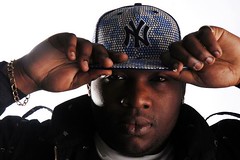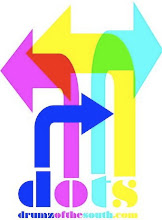
>

"i'm jus doing the dishes luv"

???
I firmly believe that if an individual makes an issue of an aspect of their identity which really shouldn't be an issue, then it will become one, a point which I attempted to make clear to Time Out's music writer, Kate Hutchinson, who penned
this very interesting article on the subject of 'Women in Dubstep.' This belief, coupled with the 'dubstep' tag which 5 years later, I'm still at odds with (not cos of it's etymology but cos in general, I still hate labelling), made it fairly difficult for me to comment on the subject. Whilst being female (whatever that means outside of lady bumps and the ability to give birth) has never been a problem for me where music is concerned, the mere fact that Time Out chose to focus on it, indicates that it's still a contentious issue.
Whilst there are a number of females involved behind the scenes or on the mic- Sarah Souljah,
Letty,
Melissa,
Hera,
Hanna,
Emma W,
Warrior Queen,
Arorah,
Farrah to name but a few, there are still very few girl DJs and fewer girl producers. Unlike Kate though, I'm not perplexed by this fact and agree that it is largely due to the young age of Dubstep. Additionally, I suspect that us girls aren't conditioned to fiddle with machines as quite as boys are, meaning that it's not that we don't know how to use machines but that we're less likely to be encouraged to do so from an early age. Furthermore, the lack of women making electronic music in general doesn't exactly make for a sociable activity for the few that do- if you're the kind of girl that likes to make beats and also likes to hang out with other girls, chances are, you're in for a bit of a lonely existence.
Another factor that I believe plays a part is that most women are seemingly more interested in making and communicating the bigger picture, bringing people and ideas together (exemplified by
Mary Anne), then the narrow one, such as the single tune or bass sound.
Clearly, there are exceptions to my proposed norms and hopefully oneday, the exception will be the norm. Where dubstep is concerned at least, the few women that are involved in any way are accepted just as much as the guys and on the whole, dubstep is a scene in which equality is never a factor, rendering the question, 'is it just a boys club?' futile.
As for the question of whether girls make a different style of music to men, I'd be hard pressed to find someone who'd be able to guess immediately on hearing a
Subeena,
Dot or
Ikonika the sex of the producer. Similarly, people have often commented that
Burial's tunes sound feminine, which always makes me giggle cos at the end of the day what exactly is it that defines the gender of a tune? If feminine tunes are those with female vocals or a soulful flava, then
Mala,
Geiom,
D1 and
Anti-Social are a bunch of lasses alongside approx 50percent of electronic music producers . Equally, if masculine tunes are signified by heavy bass, darkness, square/jagged sounds, male MC's and loudness, then gimme me a razor and call me George (errrrm) cos I love 'em.
Like I said to Kate, if you think it's a boys club now, you wanna see what it was like in the early days, when the the demographic of
FWD>> (despite being run by a woman) consisted largely of:
young blokes standing around looking moody and nodding their heads
and:
young blokes prancing around waving their hands about.
If you're new to the dancefloor these days, you'll find just as many women standing around looking moody and nodding their heads or prancing around waving their hands around. If you're new to decks or music software, don't watch whether you're male, female, hermaphrodite, black, white, yellow, tiny or giant, just focus on the music and the rest will come good innit. And if you're a woman looking for a fight with blokes, go and get a job in
the square mile or something, cos you aint gonna find one in most underground music scenes.
Labels: music- dubstep, politics






 >
>
 ???
???![steepaslp[1]](http://farm3.static.flickr.com/2348/2541004867_3f3d515e07_o.jpg)


